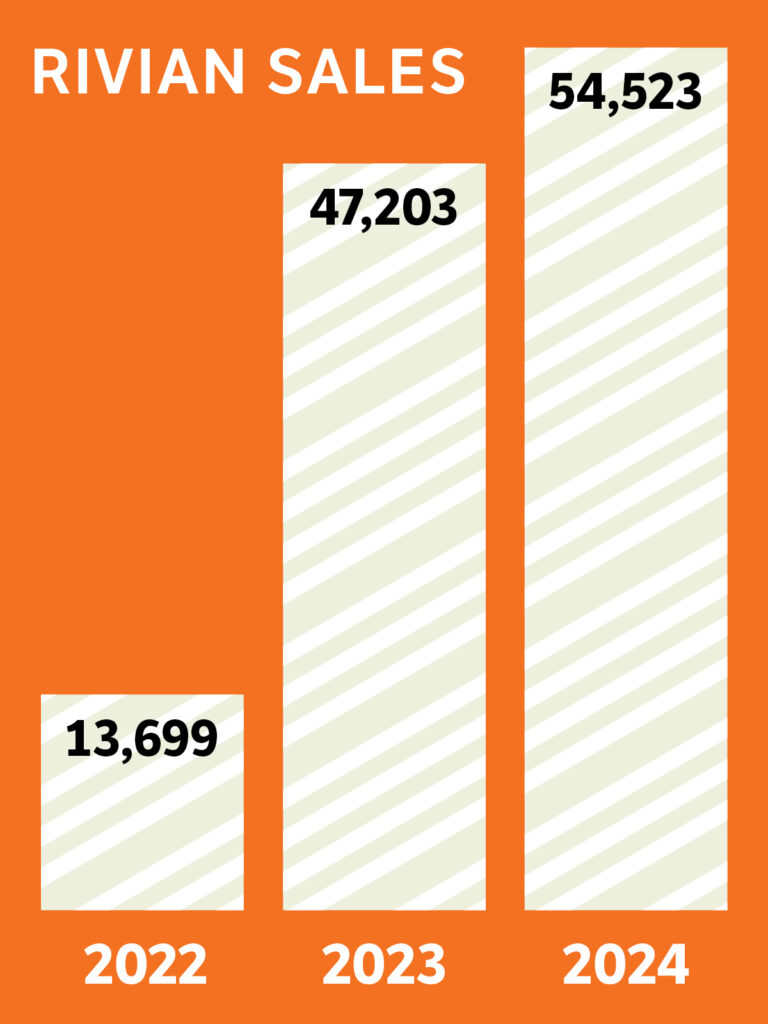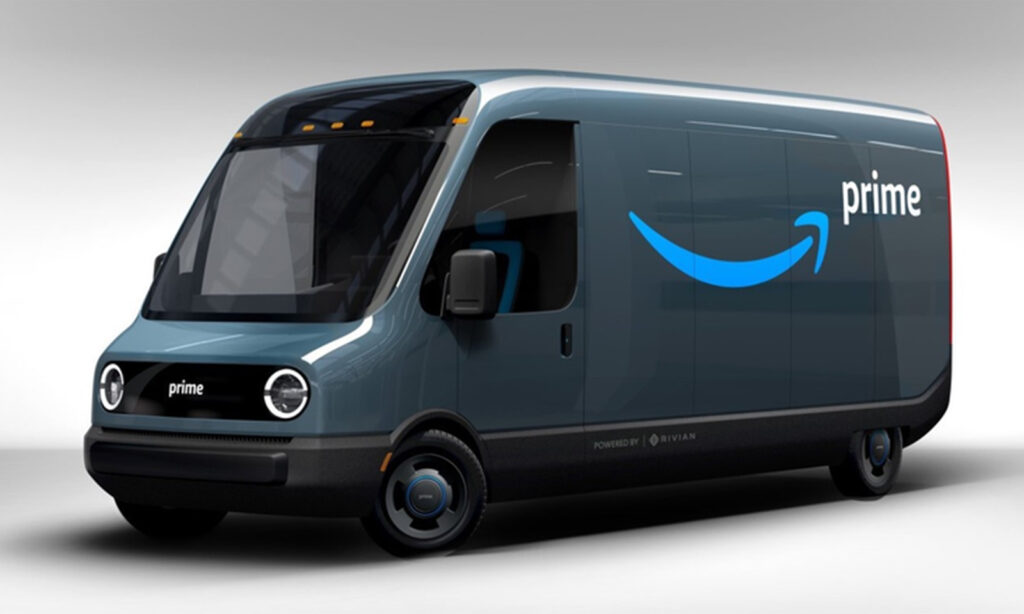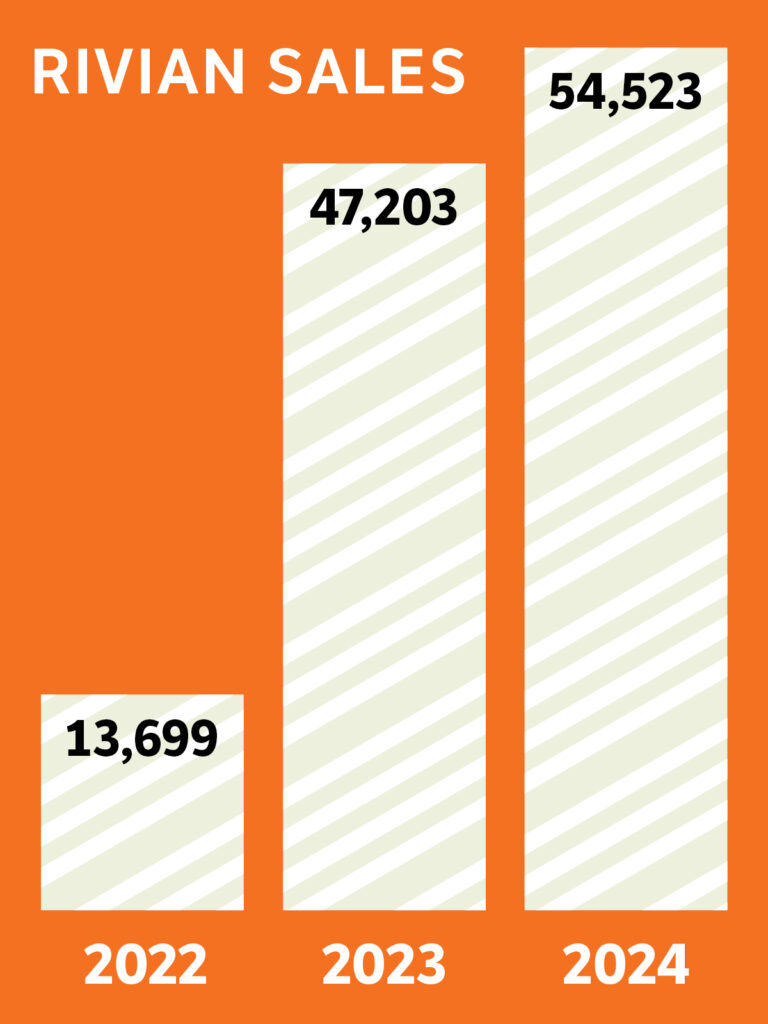RJ Scaringe was 26 years old and just one day out of graduate school at the Massachusetts Institute of Technology (MIT) when he founded the company he would later call Rivian. That was in 2009 – at the height of a historic recession. Eleven years later, Scaringe moved the company to Irvine – and then took it public amid a global pandemic.
Since then, Rivian, which makes high-tech electric trucks and SUVs, has endured serial supply-chain crises and a vexingly slow buildout of U.S. charging infrastructure.
Yet, through it all, Scaringe has maintained his focus.
“You go into this knowing it’s not an easy path,” Scaringe said in a recent interview with the Irvine Standard. “And in those early years, it was really grueling. You need a lot of capital to develop technology, and you need technology to raise the capital. But as we started to raise more capital, we started to develop better technology, after which we were able to really get some traction.”
Hard-won success
Indeed, in recent months, the company has had a lot to celebrate. In February, Rivian announced its first gross profit, for the fourth quarter of 2024. Late last year, it secured a $5.8 billion joint venture with Volkswagen. In a deal with Amazon, Rivian has now provided more than 20,000 of 100,000 electric delivery vans promised by 2030 and is branching out with other companies, including Ben & Jerry’s ice cream. What’s more, initial reviews have been glowing for the R2 model, a smaller, more affordable SUV, with deliveries expected in 2026.
“If Rivian can actually deliver this product on time, at the price it’s claimed and with the specs it’s promising, I don’t see how it won’t be a hit,” wrote one of the earliest reviewers, InsideEVs’ Patrick George.

Rivian added to its string of good news with the surprise reveal of the fruit of a several-years-long stealth program: Also, Inc., a new startup that will focus on Iightweight EVs such as bikes and scooters.
“For the world to fully transition to electrified transportation, a range of vehicle types and form factors will be needed,” Scaringe says.
Grabbing market share
Rivian’s triumphs are good for the EV industry, which urgently needs more consumer choice, says Michael Imerman, who runs the Master of Finance Program at the Paul Merage School of Business at UC Irvine.
“Tesla is still the EV leader,” Imerman says. “But this is a great opportunity for Rivian to step in and grab some market share, and I think we’re already seeing preferences shift as there are more Rivians on the road now than ever before.”
Imerman also appreciates Rivian’s benefits for Irvine, chief among them its high-paying jobs in data science, analytics, project management, engineering, design, finance and operations. “I’m really excited that my students will have these sorts of opportunities,” he says, adding that he expects Rivian to get into the black in about three years.
“This will be positive for the U.S. economy because it’s the way to the future.”
RJ Scaringe
Changing the world?
Scaringe grew up loving cars. By the time he reached college – he got a bachelor’s degree in mechanical engineering from Rensselaer Polytechnic Institute – he was dismayed by the destructive impacts of gas engines, including air pollution and emissions. That conflict inspired him to focus on developing EV technology as he pursued his graduate degrees at MIT’s Sloan Automotive Laboratory, where he and his classmates converted a 1976 Porsche to run on electricity. He founded his company, initially called Mainstream Motors, with help from his father, an engineer and founder of the Mainstream Engineering Corp. Father and son each took out second mortgages to provide the initial funding. By 2019, before selling a single vehicle, Scaringe had raised $1.7 billion, including a $700 million investment from Amazon and $500 million from Ford.
Scaringe later renamed his company Rivian, in homage to the Indian River near his childhood home in Melbourne, Florida. After initially planning to design sports cars, he decided to make trucks and SUVs to have maximum market impact.
Scaringe told an audience at this year’s SXSW Conference that through all the company’s difficulties, he kept his father’s encouraging voice in his head. He didn’t tell his Ph.D. adviser or lab partner of his plan to start the company until he launched it, telling them, “ ‘I thought you might talk me out of it and say it was a bad idea.’ My Ph.D. adviser said, ‘You’re right; it really is a bad idea.’ ”
A vegan and the father of three sons, Scaringe has long been passionate about preserving the natural environment “for our kids, and for their kids’ kids’ kids,” as he proclaims on Rivian’s website. And he continues to have faith in his company’s positive impact, even as EVs in the U.S. still account for less than 1% of cars on the road. In 25 years or less, he vows, it will be rare to see a gas-powered vehicle.
“For one thing, the user experience is so much better,” Scaringe says. “Customers prefer EVs once they have them.”
He is also encouraged by laws in California and 11 other states banning sales of new gas-powered cars by 2035.
“This will be positive for the U.S. economy because it’s the way to the future,” Scaringe says. “Imagine in the 1900s if you said, ‘Horse sales are still strong; I want to just continue investing in horses.’ We would have lost this entire, huge amount of business that was created within the U.S.”






